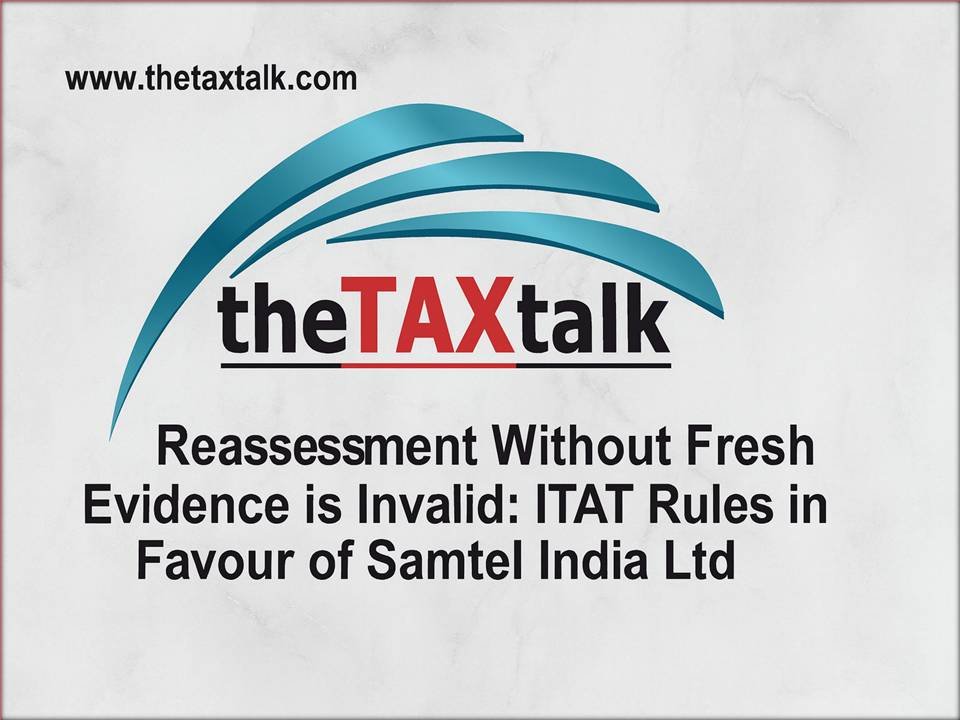![]()
Reassessment Without Fresh Evidence is Invalid: ITAT Rules in Favour of Samtel India Ltd
No Fresh Material, No Reopening: ITAT Delhi Quashes Section 148 Notice
In a significant ruling, the Delhi Bench of the Income Tax Appellate Tribunal (ITAT) has quashed a reassessment initiated under section 147/148 of the Income-tax Act, 1961, in the absence of any new or tangible material. The case reaffirms the legal principle that reassessment cannot be a tool to review earlier decisions on the same facts.
Case Background:
• Assessee: Samtel India Ltd
• Business: Manufacturing B/W TV picture tubes and trading activities
• Original Return Filed: 27.10.2017
• Original Assessment: Completed u/s 143(3) on 09.12.2009, accepting returned income
• Reassessment Initiated: Notice u/s 148 dated 17.02.2012
• Addition Made: ₹69 crore disallowed as bad debts in reassessment order u/s 147 r.w.s. 143(3) dated 27.02.2013
• Appeal Status: CIT(A) dismissed assessee’s appeal and rectification petition. The assessee moved to ITAT.
Key Issue:
Whether reassessment proceedings under Section 147 are valid when no new evidence or tangible material surfaces, and the assessee has made full and true disclosure during original assessment?
ITAT’s Verdict: No – Reassessment Invalid
Tribunal’s Findings:
• Full Disclosure Made: The assessee had disclosed all primary facts and the AO had scrutinized them during the original assessment.
• Bad Debt Claim Known: The claim for bad debts was already present in the profit and loss account and assessed earlier.
• Audit Objection ≠ Fresh Evidence: The AO relied on audit party objections to reopen the case. However, audit objections do not amount to new materialas per settled legal principles.
• No New Tangible Material: The reassessment was based solely on re-evaluation of existing facts, which amounts to a mere change of opinion-not a valid ground for reopening.
• SC Ruling Applied: The Tribunal placed reliance on the landmark Kelvinator of India Ltd.judgment by the Supreme Court, which clarified that reassessment must be based on “tangible material” and not on mere review.
Conclusion:
The ITAT held that since no new material or facts had come to light and the AO had already applied his mind during the original assessment, the reassessment proceedings were invalid in law. Accordingly, the Section 148 notice was quashed, and the assessee’s appeal was allowed.
Takeaway for Taxpayers:
Tax authorities cannot initiate reassessment proceedings merely because they have a change of heart or a second thought on the same set of facts. Unless there is new, tangible evidence, reassessment will be considered a misuse of power and will not stand judicial scrutiny.
The copy of the order is as under:


